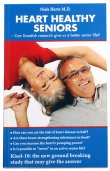WHO warning: We need to cut back on our sugar consumption
 WHO is worried about the global overconsumption of sugar and the organization recently issued a red flag warning. To some people cutting back on their sugar intake may not be that easy, however. In many cases, supplementing with organic chromium yeast may prove beneficial.
WHO is worried about the global overconsumption of sugar and the organization recently issued a red flag warning. To some people cutting back on their sugar intake may not be that easy, however. In many cases, supplementing with organic chromium yeast may prove beneficial.
People all over the world consume far too much sugar. The enormous sugar intake has caused WHO to issue a red flag warning. According to Francesco Branco, Director of WHO's Department of Nutrition for Health and Development, less than 10 per cent of our total energy intake should ideally come from sugar. That would reduce the risk of overweight, obesity, and dental decay (see text box). Consuming large quantities of sugar is indeed known to increase rates for diabetes and obesity together with numerous obesity-related diseases and conditions. Consequently, there is every reason in the world to control and reduce our sugar consumption but that may not necessarily be easy in all cases.
Blood sugar issues
Many people have a "sweet tooth" because their blood sugar is out of control. One of the characteristic signs of unstable blood sugar is an insatiable desire for sweets and sugary foods. Under normal circumstances, the sugar we take up from our diet is conveyed from the bloodstream to our cells and converted to energy. This requires insulin, a hormone that we produce ourselves, but it also requires the presence of the trace element chromium. Insulin is active outside the cells, whereas chromium "unlocks" the cells from the inside, thereby letting insulin push more sugar (glucose) into the cell.
Chromium helps insulin
If a person is chromium deficient it may result in cells not getting enough sugar to produce the energy they need. That condition is known as low blood sugar, or hypoglycemia. Brain cells and muscle cells are particularly sensitive to hypoglycemia because they require more energy than other cell types. Because of the energy shortage that follows in the wake of low blood sugar you feel tired and lethargic. A quick "sugar fix" in the form of some candy, a piece of cake, or some chocolate offers temporary relief.
Many hypoglycemic people have difficulty with controlling their need for sugar, especially because their condition is often accompanied by headaches, fatigue, irritability, and trembling hands. Eating something sweet is an easy here-and-now solution to the problem.
Organic chromium yeast
If a person's chromium deficiency is the cause of hypoglycemia, why not just increase the intake of this nutrient and solve the problem that way? Actually, more and more people find this to be a reliable and convenient solution, but not all chromium supplements will work. According to the European Food Safety Authority (EFSA), EU's "watchdog" in food safety issues, organic chromium yeast is the only type of chromium that is suited for blood sugar control, as it is absorbed up to 10 times better than synthetic chromium sources like chromium picolinate and chromium chloride.
EU has only approved one kind of organic chromium yeast, a unique chromium yeast that has been developed by a Danish pharmaceutical company. This specific chromium raw material is well suited for supplements and scientific research because it can document that it gets absorbed properly and is safe to consume.
Billions of people have untreated dental decayMore than 2.4 billion people around the world have untreated dental decay, according to a new study that was recently published in the Journal of Dental Research. Experts are alarmed by this, especially because there are known ways to both treat and prevent it. Untreated dental decay, according to experts, can lead to severe pain, infections, days off work, and problems with juvenile growth. The research shows that it is not just a problem among the young but even affects adults. |
Source:
WHO, Press Release ("WHO calls on countries to reduce sugars intake among adults and children"), March 4 2015
www.bbc.com/news/health/ (March 2015)
Search for more information...
- Created on .












 "After about one week of taking the Q10 supplement I could feel a huge difference," says 23-year old Alan Piccini, who has been suffering from extreme fatigue and muscle aches ever since he was a child.
"After about one week of taking the Q10 supplement I could feel a huge difference," says 23-year old Alan Piccini, who has been suffering from extreme fatigue and muscle aches ever since he was a child. “Taking capsules with co-enzyme Q10 has freed me of the severe side effects of my cholesterol lowering medicine,” Mrs Franken explains.
“Taking capsules with co-enzyme Q10 has freed me of the severe side effects of my cholesterol lowering medicine,” Mrs Franken explains.